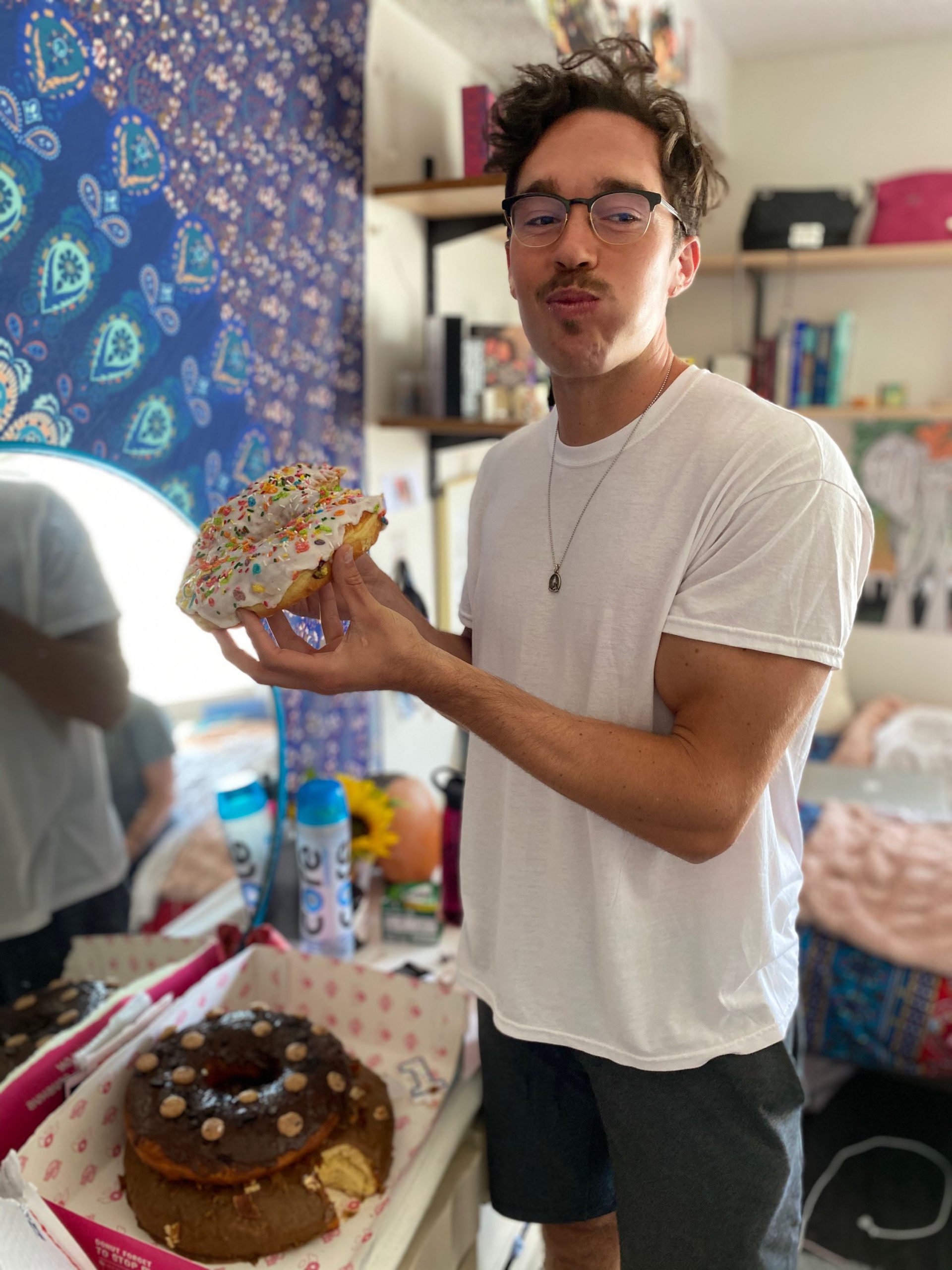By Darrah Scheimann
“I like meth, I like heroin, and I like alcohol,” Vinnie tells me when I asked him how he ended up at Beit T’Shuvah. “I guess I decided I liked that more than day-to-day responsibilities.”
Rehab didn’t become a serious consideration until Vinnie realized he was staring at potential homelessness. He’d long since run out of money for food and had drained his state-funded EBT. With the clock ticking down on his insurance, which would run out at the end of the year, Vinnie realized that his options were down to either rehab or a life on the streets. “Rehab seemed like the path of least resistance.”
Vinnie had already visited his fair share of what he calls “wash and dry treatment centers” – 30 to 90-day detoxes and in-patient facilities. His uncle, who had been through the house in 2008, referred Vinnie to Beit T’Shuvah, where he was admitted in 2012. Despite being only 18 at the time, he was hired as a Program Facilitator (or ‘PF’) and maintained a significant period of sobriety before accepting a job offer from a sober living called Transcend. They’d offered him a pay raise that at the time was too tempting to ignore, but ultimately Vinnie came to regret his decision.
Unable to find the same level of satisfaction in his job, Vinnie eventually relapsed. His decision to return to Beit T’Shuvah involved recognizing how the program here was uniquely beneficial to his needs: “If I want to really change my life, I need a long-term treatment center that has a big community, has a work-therapy program and will give me enough time to get my life in order.”
Naturally inclined to seek intoxication and solitude, the welcoming and loving community at Beit T’Shuvah is a huge factor in Vinnie’s sobriety. “Having real friendships and connecting with people is actually not just important, but is the primary part of my life. Here, I learned all the quirky weird funny things about people that make them lovable.” Being able to engage other people on a meaningful level has elevated every other aspect of Vinnie’s life as a consequence; it has lessened both his anxiety and his depression, providing a buffer against urges to heed the siren song of his addiction.
And because his bond with the community is a centerpiece of his recovery, Vinnie’s position as a PF fits like a glove. “I tend to be a bit of a ‘cave-dweller’ so having the PF position where I’m constantly interacting with people transfers into my outside life. I’m doing that here for work, and I have more of a tendency to do that outside of work with my recovery. I saw it as a good way to stay connected to the community, but more so as a way for me to change old habits I have.”
In order to pursue a position as a counselor at Beit T’Shuvah, Vinnie is working on achieving his drug and alcohol counselor certification, known as a ‘CADAC.’ With all the expenses education entails, he’s gratefully receiving some help from a scholarship offered by the Kahn family.
The Barbara and Ronnie Kahn Educational Scholarship Fund is a major resource for residents of Beit T’Shuvah that need a leg up on pursuing their goals and dreams. They “really hooked me up”, Vinnie says. The Kahn scholarship “lifts you up by your bootstraps”, and for Vinnie, this meant that they paid for his schooling and bought him a laptop to facilitate his studies and success. And it has been valuable in other ways, too: they helped him find schools relevant to his needs and complete the application process.
“Beit T’Shuvah is investing in my future and incentivizing me to continue on days that I just feel like I don’t want to. It helps me counter that thought and stay motivated.”
Recently, Vinnie has been promoted from a PF intern to a fully-fledged employee. He says although he is a staff member now, “I’m still working shoulder-to-shoulder with the PFs, the rabbis, the counselors. I don’t ever feel like I’m a subordinate, nor do I feel like my voice isn’t being heard. The clinical department does a good job of making everyone feel important. I feel like I’m definitely part of the Beit T’Shuvah family.”
